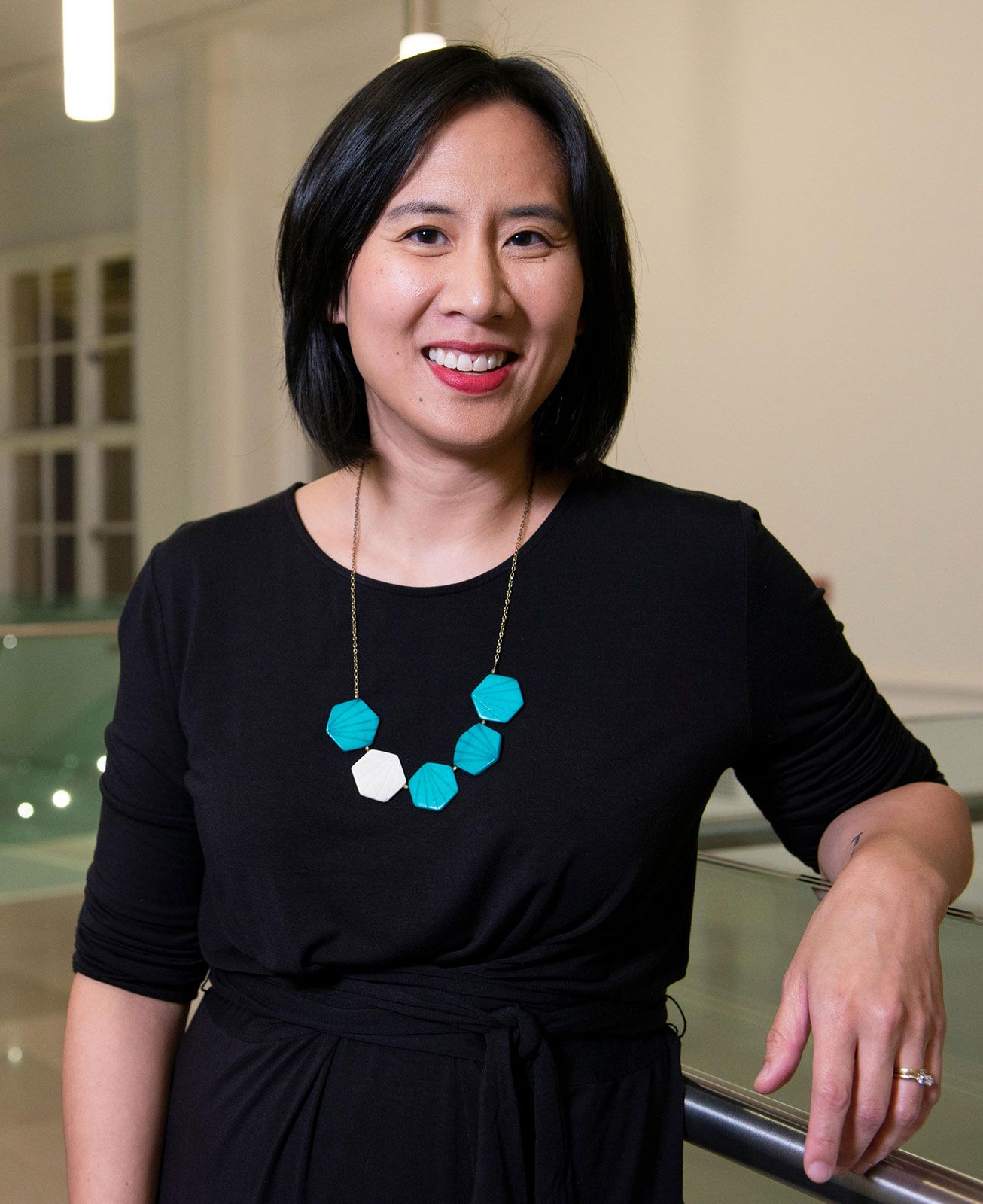AI and social justice are increasingly intertwined in contemporary discussions about technology’s role in society. Ruha Benjamin, a prominent sociologist, emphasizes the urgent need to examine AI technology ethics, particularly as these advancements often mirror existing societal inequities. She argues that while AI is purported to drive progress, its implementations can deepen oppression, especially for marginalized communities. This paradox raises questions about our collective future; is the rapid evolution of AI fostering inclusivity or reinforcing systemic biases? To create a truly equitable technological landscape, we must prioritize human-centered design that integrates diverse perspectives and ethical considerations.
The intersection of artificial intelligence and equity is a topic gaining significant attention across various disciplines. As we navigate this technological landscape, concepts such as social justice and technology emerge as vital frameworks for understanding the implications of AI on our lives. The dialogue around the future of AI raises critical awareness about the ethics of AI systems and their societal impact. Distinct fields are examining how technological advancements can be aligned with fair practices, ensuring that innovations benefit all segments of the population. The call for a more inclusive approach invites us to rethink our technological designs and preserve human dignity amid evolving digital paradigms.
AI Technology Ethics: A Call for Awareness
The debate surrounding AI technology ethics has gained considerable momentum as the implications of these systems become more widespread. Ruha Benjamin emphasizes the pressing need for society to interrogate the moral dimensions of AI, particularly as it relates to marginalized communities often overlooked in technological advancements. This calls for an ethical framework that goes beyond efficiency metrics and addresses the profound social consequences that these technologies can inflict.
In addition to the ethical considerations, there is a growing recognition that AI systems must be developed with a human-centered design approach. By integrating ethical reasoning into the ontology of AI systems, we can facilitate the creation of technologies that not only enhance efficiency but also prioritize human dignity and equity. This approach is critical in reconstructing societal paradigms to favor inclusivity over exclusion.
Social Justice and Technology: Bridging the Gap
Social justice and technology must intersect meaningfully to create a future where innovation serves humanity rather than exacerbates inequality. Ruha Benjamin argues that far too often, technology is presented as a panacea for societal ills, while in reality, it perpetuates existing hierarchies. It’s imperative that engineers and developers engage deeply with social justice principles to ensure that their creations actively contribute to dismantling systems of oppression.
Emerging technologies should not only be evaluated based on their operational success but must also be scrutinized for their impact on vulnerable populations. By applying a social justice lens to technological development, stakeholders can uncover biases inherent in current AI systems, leading to more equitable outcomes. This transformative shift requires collaborative efforts from all sectors, including academia, government, and civil society.
The Future of AI: Imagining a Humane Society
The future of AI does not have to embody a dystopian vision; in fact, it can reflect an optimistic and humane society if approached thoughtfully. Ruha Benjamin’s insights encourage us to reimagine future AI landscapes as ecosystems that prioritize human flourishing. Instead of technology serving as a means for surveillance and control, it can be harnessed to foster community engagement and shared prosperity.
To move toward this vision, it is crucial for technologists and policymakers to break down traditional barriers and engage with interdisciplinary perspectives, particularly from the arts and humanities. This collaborative approach can cultivate new ideas that emphasize creative problem-solving, enabling society to envision innovative systems that prioritize social well-being over mere technological advancement.
Creative Imagination in AI Development
Ruha Benjamin’s call for a renewed focus on creativity in AI development highlights the importance of imaginative thinking in addressing complex societal challenges. By promoting interdisciplinary collaboration, especially with the arts, technologists can discover novel pathways for AI application that transcend conventional methodologies. This creative engagement has the potential to foster solutions that resonate with the lived experiences of diverse communities.
Moreover, encouraging a culture of imagination within technological spaces can dismantle the limitations imposed by traditional perspectives. Instead of merely optimizing existing technologies to reduce harm, creators can envision entirely new paradigms and systems that prioritize collaboration, inclusivity, and justice. This process of reimagining future possibilities is essential for harnessing technology’s power for good.
Human-Centered Design: Bridging Ethics and Innovation
Human-centered design is critical in the context of AI development, ensuring that the end-users’ needs are placed at the forefront. Ruha Benjamin articulates that without this focus, AI technologies risk perpetuating historical biases and social inequalities. By prioritizing the voices of those who are often excluded from the design process, we can create systems that not only function effectively but also resonate with ethical standards.
To implement human-centered design effectively, the technology sector must embrace diverse voices and experiences that reflect a broad spectrum of societal realities. This diversity of input is essential for developing AI systems that address real-world challenges, as it encourages solutions that resonate with those whom these technologies impact most. By leveraging human-centered design principles, we can work toward a future where technology serves as a tool for empowerment.
The Critique of Tech Elites in AI Narratives
Ruha Benjamin critically examines the narratives surrounding AI proposed by tech elites, suggesting that many of these visions serve to reinforce existing inequalities. The glorification of AI as a savior for societal problems often obscures the self-interested motives of those framing these ideas, particularly affluent individuals who may not experience the systemic challenges faced by the majority. The rhetoric of altruism in technology must be scrutinized to unearth the underlying motives.
Understanding the perspectives of those consistently marginalized is vital in countering the narratives presented by tech elites. By amplifying these voices, society can shift its focus from a narrow, elite-driven vision of AI to a collective vision that genuinely addresses the needs and desires of the broader population. This shift is crucial for steering the development of AI towards the collective good, rather than allowing it to become a tool of further oppression.
Dismantling Barriers in AI Perception
Benjamin’s commentary on the mental barriers that stifle imagination urges us to reconsider how we perceive technology in relation to social good. In our society, there is a tendency to dismiss ideas that contradict traditional frameworks of success, often leading to a constricted vision of what AI can accomplish. Encouraging a culture that values bold ideas and radical creativity will help dismantle these barriers and foster innovative solutions.
By promoting an open-minded approach to technology and its potential impacts, we can cultivate an environment where diverse ideas are welcomed. This not only enriches the dialogue around AI and social justice, but it also inspires emerging thinkers to challenge the status quo and push against the boundaries of creativity. These shifts in perception are essential for nurturing a future where technological advancements prioritize human values.
The Role of Universities in AI and Social Justice
Universities play a transformative role in the discourse surrounding AI and social justice, as they are often the breeding grounds for new ideas and critical thinking. Ruha Benjamin’s call for academic institutions to emphasize inquiry through the arts and humanities reflects an urgent need to integrate social awareness into technological education. This integration can cultivate a generation of innovators who recognize their responsibility to contribute to social equity.
As institutions of higher learning prioritize interdisciplinary studies that weave together technology, ethics, and societal implications, they can influence the frameworks within which future technologies are developed. By fostering an academic culture committed to social responsibility, universities can empower students to challenge existing paradigms and pursue innovative solutions that address pressing societal issues through an ethical lens.
Frequently Asked Questions
What role does AI play in social justice according to Ruha Benjamin?
Ruha Benjamin emphasizes that AI can either reinforce or challenge social injustices. She critiques AI technologies that are marketed as efficient but often perpetuate oppression, particularly against marginalized groups. For AI to support social justice, it must be developed with an understanding of historical and social contexts, rather than purely computational metrics.
How does Ruha Benjamin view the ethics of AI technology?
Ruha Benjamin argues that the prevailing ethics of AI technology often ignore the needs of marginalized communities. She points out that AI decision-making based on algorithms can lead to harmful consequences, similar to the eugenics movement of the 20th century. Ethical AI practices must center human experiences and prioritize social justice to avoid reproducing systemic inequalities.
What does Ruha Benjamin suggest for the future of AI and its impact on society?
Ruha Benjamin calls for a reimagining of AI’s future, one that transcends current biases and assumptions. Instead of merely improving existing systems, she advocates for creative, human-centered designs that prioritize collective good, including accessible public services like transportation and housing, as part of a broader vision for social justice through technology.
What examples does Ruha Benjamin provide to illustrate AI’s negative impacts on social justice?
Benjamin cites examples such as facial recognition technology leading to false arrests and automated healthcare triage systems that can disadvantage vulnerable populations. These instances illustrate how AI can perpetuate existing inequalities rather than alleviating suffering, underscoring the need for ethical considerations in AI development.
Why does Ruha Benjamin believe creative inquiry is essential in discussing AI and social justice?
Benjamin believes that creativity and imagination are crucial in envisioning a just future with AI. She encourages universities to foster inquiry through the arts and humanities, as these disciplines can provide diverse perspectives that inform technology’s role in society, ultimately helping to dismantle harmful structures and promote a more equitable world.
| Key Point | Details |
|---|---|
| Dystopian Futures | Ruha Benjamin argues that the future can be radical and positive. |
| Critique of Tech Elites | Benjamin expresses skepticism towards tech billionaires’ motivations and methods. |
| AI and Oppression | AI technologies often perpetuate oppression rather than solve societal issues. |
| Ethics in AI Development | Decision-making based solely on algorithms can harm marginalized communities. |
| Need for Diverse Knowledge | Creativity and social understanding must accompany technical expertise. |
| Reimagining Society | Benjamin encourages envisioning alternatives to existing societal structures. |
Summary
AI and Social Justice is an essential conversation as we navigate the intersection of technology and humanity. Ruha Benjamin’s insights urge us to rethink the role of AI in society, not just as tools for efficiency but as potential perpetuators of inequality. By critically examining the motivations behind AI technologies and advocating for inclusive dialogues, we can strive to create a future that prioritizes ethical considerations and imaginative solutions. This means envisioning a society free from oppressive structures, ultimately leading to a more just and equitable world.


